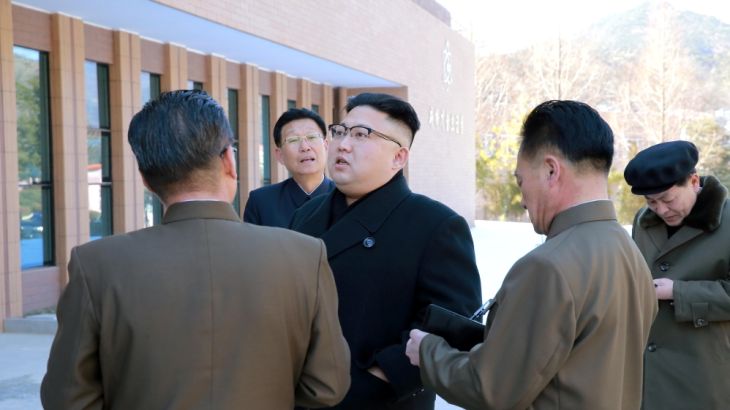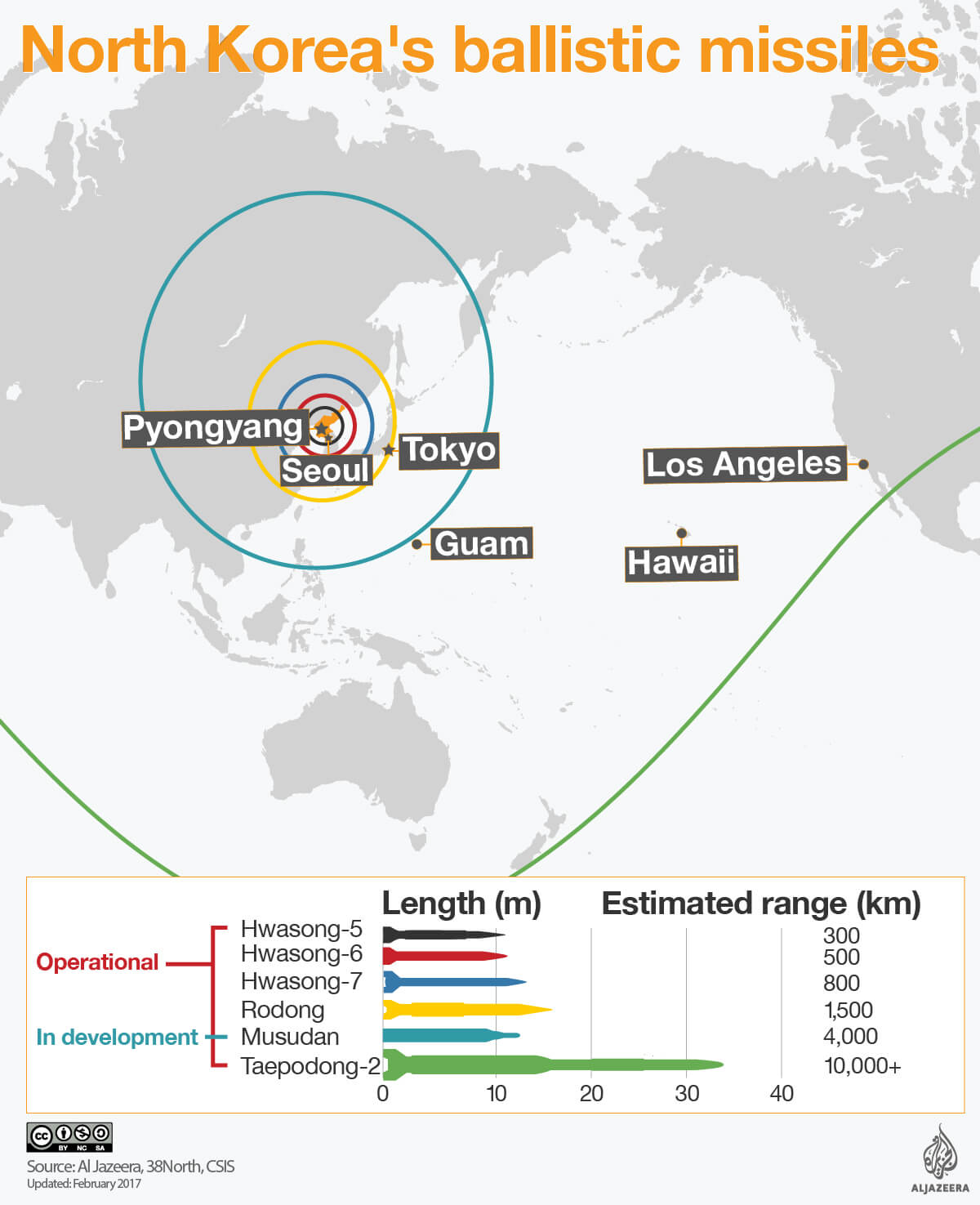North Korea fires ballistic missile, challenging Trump
US and South Korean officials condemn launch and agree to explore ways to suppress “North Korean provocations”.

North Korea has fired a ballistic missile in an apparent provocation to test the response from US President Donald Trump, the South Korean defence ministry said.
US National Security Advisor Michael Flynn requested a call with North Korean leader Kim Jong-un after Pyongyang test-fired the missile on Saturday, South Korea’s presidential Blue House said in a statement on Sunday.
Keep reading
list of 4 itemsFive takeaways from day two of Trump’s New York hush money trial testimony
‘Catch and kill’ scheme takes centre stage at Trump hush-money trial
‘Battlelines’ drawn as jury hears opening remarks in Trump hush money case
Trump on Saturday assured Japan it has the full support of the United States following the missile launch.
“I just want everybody to understand and fully know that the United States of America stands behind Japan, its great ally, 100 percent,” Trump said at a joint news conference with Japanese Prime Minister Shinzo Abe.
READ MORE: US warns North Korea against nuclear attack
In a phone call between Flynn and his South Korean counterpart Kim Kwan-jin, the US and South Korea agreed to explore all possible options to rein in North Korean provocations, the Blue House said.
The missile flew about 500km before falling into the sea, a South Korean defence ministry spokesman said, adding the exact type of missile had yet to be identified.
“It is believed that the missile launch … is aimed at drawing global attention to the North by boasting its nuclear and missile capabilities,” the ministry said in a statement.
“It is also believed that it was an armed provocation to test the response from the new US administration under President Trump,” it added.
While Seoul initially said the missile was probably a medium-range Rodong, it later said the launch was likely of a Musudan, which is designed to fly up to 3,000-4,000km.
“The launch also appears to be part of the North’s effort to steadily improve its missile capabilities,” an army official was quoted by Yonhap news agency as saying.

READ MORE: N Korea defector – Kim Jong-un’s days are numbered
South Korea’s acting president, Hwang Gyo-Ahn vowed a “corresponding punishment” in response, while Japan’s top government spokesman Yoshihide Suge called the launch “absolutely intolerable”.
“Considering the missile was launched immediately after the Japan-US summit, it is clearly a provocation to Japan and the region,” Suge told reporters.
The launch came on the heels of a visit to Seoul by new US defence secretary James Mattis last week, who had warned Pyongyang that any nuclear attack would be met with an “effective and overwhelming” response.
“Any attack on the United States or our allies will be defeated and any use of nuclear weapons would be met with a response that would be effective and overwhelming,” Mattis said.
READ MORE: Trump assures Abe over disputed East China Sea islands
North Korea is barred under UN resolutions from any use of ballistic missile technology but six sets of UN sanctions since Pyongyang’s first nuclear test in 2006 have failed to halt its drive for what it insists are defensive weapons.
Last year, the country conducted numerous tests and launches in its quest to develop a nuclear weapons system capable of hitting the US mainland.
In January, leader Kim Jong-un boasted that Pyongyang was in the “final stages” of developing an intercontinental ballistic missile (ICBM) in an apparent attempt to pressure the incoming US president.
Washington has repeatedly vowed that it would never accept North Korea as a nuclear-armed nation and the latest launch poses a test for Trump, who will need the help of Beijing, Pyongyang’s closest ally, to deal with the reclusive state.
Analysts are divided over how close Pyongyang is to realising its full nuclear ambitions, especially as it has never successfully test-fired an ICBM.
OPINION: Trump era heightens Asia-Pacific’s tripwires
But all agree it has made enormous strides in that direction since Kim took over after the death of his father and longtime ruler, Kim Jong-Il, in December 2011.
The young leader is planning a “prime time” nuclear weapons push this year to take advantage of a leadership transition in South Korea – where the president has been impeached – and the US, a high-ranking North Korean defector said recently.
Thae Yong-Ho, a former deputy ambassador to Britain who recently defected to Seoul, said Kim would never trade away the North’s nuclear arsenal, no matter how large a financial incentive might be offered.
|
|